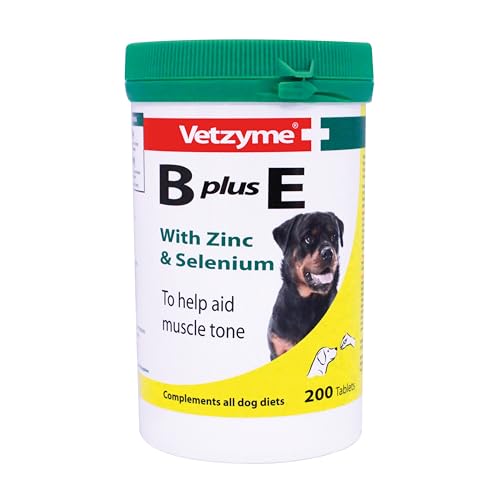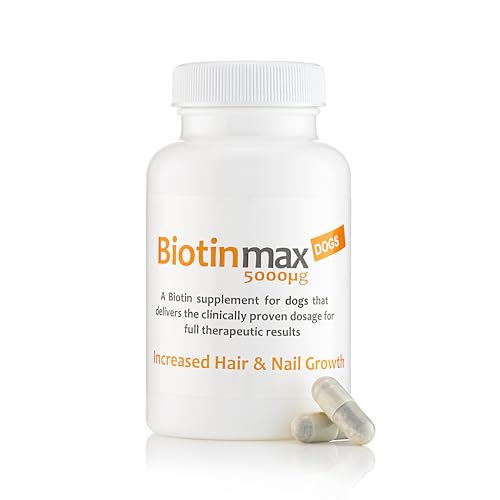Understanding Vitamin B Complex: What It Is and Why Your Dog Needs It
What is Vitamin B Complex?
Vitamin B complex is a group of eight essential vitamins that play a crucial role in your dog’s health. These vitamins include B1 (thiamine), B2 (riboflavin), B3 (niacin), B5 (pantothenic acid), B6 (pyridoxine), B7 (biotin), B9 (folate), and B12 (cobalamin). Each of these vitamins performs various functions that are vital for maintaining your dog’s well-being, such as supporting metabolism, promoting healthy skin and coat, aiding digestion, and protecting the nervous system.
Why Does Your Dog Need Vitamin B Complex?
Dogs require Vitamin B complex to sustain optimal health. For instance, B vitamins are essential in converting food into energy. If your dog is energetic and playful, they likely have a good balance of these vitamins. Furthermore, B vitamins help to create red blood cells, support brain function, and boost the immune system. A deficiency in any of these vitamins may lead to health issues, such as poor appetite, lethargy, and skin problems.
The Best Sources of Vitamin B for Dogs: Food vs. Supplements
Natural Food Sources of Vitamin B
One of the best ways for your dog to get a sufficient amount of Vitamin B complex is through a balanced diet rich in high-quality ingredients. Animal-based proteins such as meat, fish, and eggs are particularly good sources. Organ meats like liver are especially nutrient-dense and can provide large amounts of many B vitamins. Additionally, some vegetables like spinach, broccoli, and sweet potatoes offer B vitamins, especially B9 and B5.
Supplements: When Are They Necessary?
While natural sources are the best way to ensure your dog gets the vitamins they need, sometimes a supplement may be beneficial. If your dog is a picky eater, has specific health issues, or is on a restricted diet, supplements can help bridge the nutritional gap. It’s essential to consult with your veterinarian to determine if a vitamin B complex supplement is appropriate for your dog and to choose a product designed specifically for canine health.
How to Choose the Right Vitamin B Complex for Your Dog: Key Factors to Consider
Consultation with Your Vet
Before selecting a vitamin B complex for your dog, discussing your options with a veterinarian is important. They can assess your dog’s diet, health status, and any dietary deficiencies to recommend a specific formulation that will be beneficial. It’s essential not to self-diagnose or choose supplements based solely on what you read online.
Quality of Ingredients
When examining vitamin B products, we should focus on the quality of the ingredients. Look for veterinary-formulated supplements that guarantee purity and potency. Avoid products with fillers, artificial preservatives, and low-quality ingredients. A reputable brand will typically provide detailed information about their manufacturing process and ingredient sourcing.
Signs Your Dog May Benefit from Vitamin B Complex: Recognising the Need
Common Symptoms of Deficiency
We can observe several signs that may indicate your dog requires more Vitamin B complex in their diet. Common symptoms include fatigue, irritability, decreased appetite, skin issues like dryness or irritation, and poor coat condition. If your dog seems lethargic or is losing weight without explanation, it might be time to consider whether they are getting enough B vitamins.
Specific Health Concerns to Watch For
In addition to general symptoms, certain health conditions are associated with low levels of B vitamins. For example, dogs experiencing prolonged stress, digestive issues, or recovering from illness might benefit from increased B complex levels. Watching for any changes in your dog’s behaviour or health can provide you with clues about their nutritional needs.
How to Introduce Vitamin B Complex into Your Dog’s Diet: Tips for Easy Incorporation
Start Slowly with Food Sources
If you’re introducing natural sources of Vitamin B into your dog’s diet, we recommend starting slowly. Gradually adding small amounts of meat, fish, or vegetables high in B vitamins can help your dog adjust without upsetting their stomach. Mixing these new foods with their regular meals often eases the transition.
Using Supplements Effectively
When using a vitamin B complex supplement, consistency is key. Follow the dosing instructions provided by your veterinarian or the product packaging. We suggest incorporating the supplement into your dog’s food to make it more palatable. Some dogs may take to liquid forms more easily, while others prefer chewable tablets. Monitor your dog for any changes in behaviour or health as you introduce supplements to assess their effectiveness.















